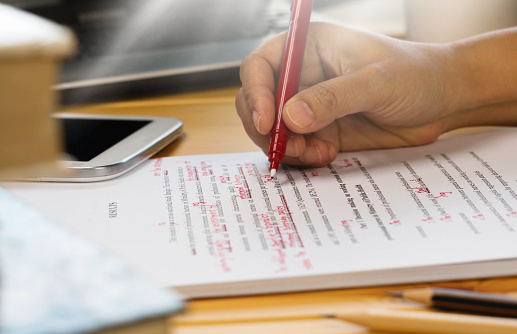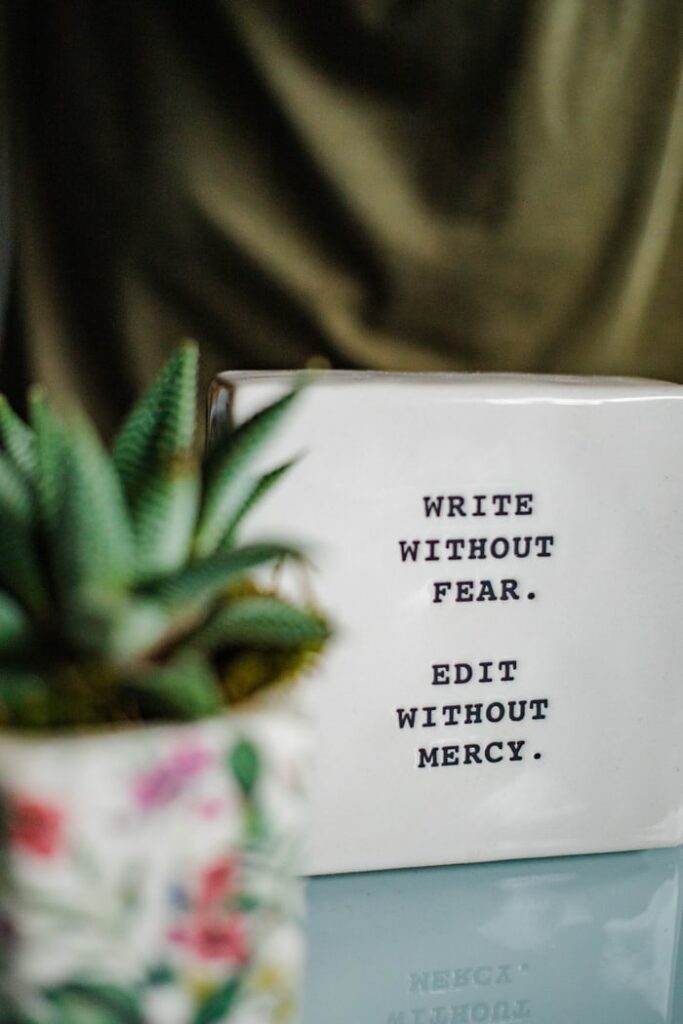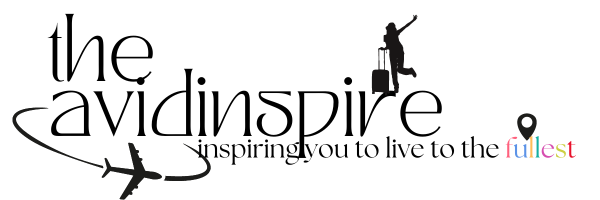
As an editor, when a client (writer) wants to work with me, the first question I ask them is “What type of editing do you need?” It’s been two years of professional editing and I must tell you, they never know the answer to that question.
So, this article is mainly for writers (and editors who would like to know more about their craft).
I will start this article by relaying a message I’ve always wanted to pass to writers and it is “Every writer must possess editing skills.”
In Constant Content’s article, 10 Skills Every Great Content Writer Needs, Editing was one of the skills listed there.
This is an important information all writers must know. As a writer, you should have basic knowledge of editing and be able to work so well on your writing that the editor will perform a seamless job. This was how I felt when I edited Resolve and Digital Leverage by Olaosegba Isaac. He is such a good writer that I enjoyed working on his books. But, this I cannot say for some other editing work I’ve done.
Several writers pass on half-baked works to editors because they know little to nothing about editing which actually causes undue stress on editors.
I’ve heard of editors who refused to edit a writer’s work because the writing was so bad that an edit couldn’t fix it. Other times, some would mention highly ridiculous prices just so they don’t have to work on the writing.

And you wouldn’t blame these editors.
Editing articles might be less boring because it’s usually an edit of 1500 – 5000 words (at most), but when you’re editing a novel or short book between 30,000 – 100,000 words and the writing is bad (and it’s not even a story you can enjoy while at it), editing can get really frustrating.
This is why I have written this basic and important guide for writers to know the type of edits their books need, so they won’t give a copy editor what a developmental editor should do.
I have also worked with ‘senior editors’ who didn’t know any other type of editing than ‘structural editing,’ and because the writers also didn’t know the type of edit they wanted, they accepted what they were given like that.
But one thing I have learned as a professional editor is that you can tell what edit a book needs just by reading through it.
Sometimes writers might say they want a particular edit, but as an editor you can tell that is not the type of edit they need.
It all boils down to knowing the different types of editing and which one the writing needs.
The Different Types of Editing
This list below contains the popular and most important types of edits most manuscript or content needs.
1. Developmental Editing

It is also called the ‘Big Picture’ editing. Here, the editor works on ‘half-baked’ manuscripts and helps the writer turn their ideas or stories into the book they desire to have.
The developmental editor asks questions like, “Do you have an outline? How do you want this story to end and how is this chapter in the middle connecting to the end you have in mind?”
As a writer, this edit is needed in the first stage of writing. It is needed if you get stuck with what to write next, when your ideas aren’t adding up, or when you have ideas but you don’t know how to turn them into the book you envision.
2. Copy Editing

Which is what I do best, is the type of edit you need when you’re done with your manuscript and you need an editor to work on your grammar, spellings, inconsistencies, fact-checking, and also the passive and active voice used in your work.
A copy editor ensures your book is readable and conveyed in a manner that suits your audience. Copy editors do not usually change your writing or rewrite your work, they ensure the structure and organization of your work is queried and revised, and sometimes, they can change it altogether.
Also, they usually follow a style guide. The most popular which are The AP Style or The Chicago Manual of Style.
Editors who work at publishing companies mostly follow the style guide used in the publishing companies.
Copy editors also ensure the language consistency of your work (by deciding if you will be using american or british english and sticking to one of them throughout your work).
Also, it is important to go for a copy editor after you have gone through your work and performed a self-edit.
I am reiterating this because I’ve worked with some writers who wrote the first draft of their book, didn’t bother reading through or checking if they conveyed their intentions well in the manuscript, and just threw it at the copy editor, expecting me to work some magic.
It can be a huge task for the editor. It is important to read through your work over and over again, check some errors you might have missed (this was why I mentioned having basic editing skills), before sending it over to the copy editor.
3. Line or Substantive Editing

They are usually used interchangeably but sometimes they may mean different things. What they mostly focus on is the clarity of your sentence like, if you overused adverbs and adjectives, if you used too much ambiguities, and how weak or strong your sentences are. It has to do with editing your work line by line and making sure to correct every error before moving to the next, unlike some other edits like content edit, this one looks at the paragraph or the story as a whole.
You need this kind of edit when you are sure you’ve written well but you need your work re-examined for flaws you didn’t notice as the writer.
4. Structural Editing

According to SFU, Structural editing is the process of assessing and organizing or reorganizing material to improve its flow, logic, and readability.
Like its name implies, this is a thorough edit of the structure of your work. It could be the sentence structure or the grammar structure. It is usually carried out to improve the flow of your writing.
A structural editor asks questions like “Does it sound right? Does it make sense? How can I change this word to convey the writer’s message better?” The editor might not focus on punctuations or spelling (unless they are needed to improve the sentence readability).
5. Content Editing

It is a broader form of editing because it covers working on various forms of content. It might mean something from editing a content to improve its readability, checking if the facts are correct, writing an engaging piece, to editing the content for SEO by inserting keywords and optimizing it for traffic.
It is not limited to one type or form of writing. So, if you have articles to edit, you might want to talk to a content editor (which is also my area of expertise) rather than editors who are primarily focused on books, novels etc.
6. Proofreading

It is popularly known as the ‘final level edit.’ This is the edit done at the final stage of your work.
It is usually done after all the other types of editing have been carried out.
I did several proofreading work for my clients when I first started editing because it seemed easier to do than the other types. This does not demand any deep work. You check for punctuations, spellings, inconsistencies, and fact errors that might have been missed during the other edits.
You ensure the work is suitable to be published because after it leaves you, it is going to the publisher.
The writer counts on the proofreader and trusts that the final work being carried out is a permission and clearance to go ahead and release the book to the world.
7. Self-Editing

This one is done by You, the writer.
While this is not a conventional type, I am including it because of how important it is for you, the writer.
My published novella, The Tombstone of Monsters, was a book I self-edited. Although, it won’t be as perfect as when a book is edited by a professional editor (who isn’t the writer), I can still boldly say it turned out great.
I still remember how many times I worked on it, how many times I read and corrected the spellings, grammars, structures, and some inconsistencies in the story before I published it.
That is the attitude every writer must have towards their books before giving it to an editor.
–

Other types of editors your book might need in the first stage are the Beta Readers and Book Critique.
The Beta Readers are the ones who read your book and give feedback on what they think about it. They are usually given questionnaires to fill after reading the manuscript before any real edit is done on it, because based on what they say, the book can be re-written or some ideas can be totally changed.
The Book Critique is a professional that gives an overview of the book. They check factors like, ‘Is the book ready to be in the hands of a reader? Does it suit the kind of audience it was intended for? Is it well written? Will it sell when it is released?’ and so on.
–
Editing one’s work is a necessity if you want your work to stand out. For bloggers, self-editing might be the way to go because your writing can always be revised and edited by you (if you write well enough, your work is readable, and you can construct your grammar correctly).
But for novel or book writers, you will need to hire the services of an editor because you want to convey yourself as a great writer through your work.
I hope you found this useful for you as a writer or as an editor.
If you also need the services of an editor, you can reach out to me.
–
Do you have other types of editors you think I didn’t mention or talk about? Kindly share with us in the comments section.








This is amazing.
As a writer, I learnt a great deal about editing. Thank you for referencing 2 of my published books.
This content is full of value, and I am sure every reader will learn.
Sarah is a great editor, and I recommend her to everyone that wants to make their book readable and marketable.
Thank you Isaac. Your books were a joy to edit. Your wonderful comment means a lot too. We look forward to seeing more of your works.